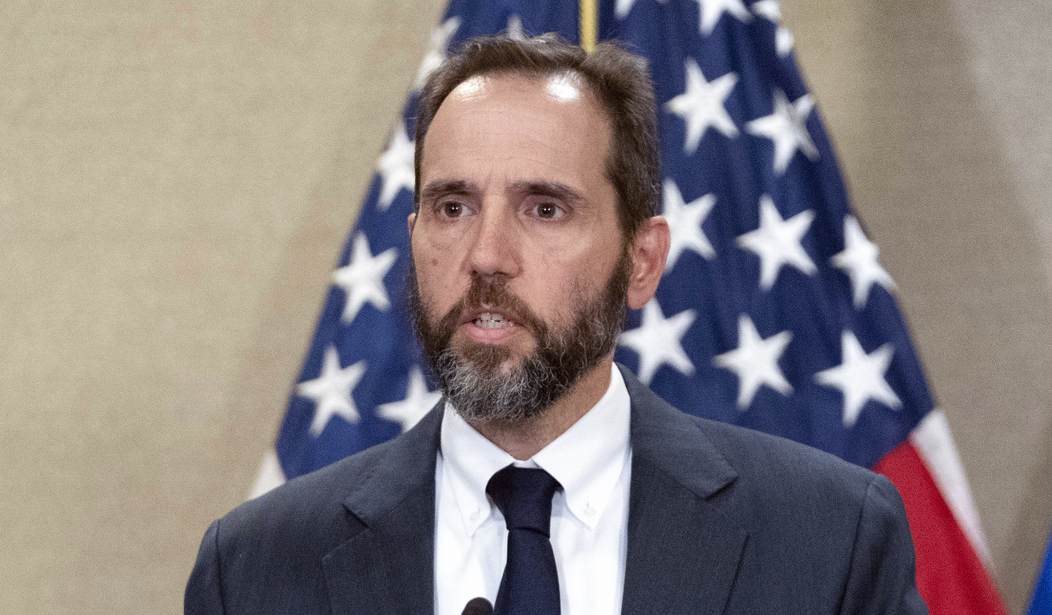Donald Trump's attorneys filed what his team termed a "powerhouse motion" in early January in the D.C. Circuit criminal case brought by Special Counsel Jack Smith regarding the 2020 election. The motion sought to hold the prosecution in contempt for filing additional discovery and a substantive pre-trial motion (a motion in limine) after Judge Tanya Chutkan had entered an order staying the proceedings in the case while the presidential immunity issue is sorted out on appeal.
READ MORE: Trump Team Fights Back With 'Powerhouse Motion' Requesting That DC Court Hold Jack Smith in Contempt
So, while Judge Chutkan still retains jurisdiction over the case for certain procedural rulings and has not yet formally vacated the March 4 trial setting, all deadlines and further proceedings (including discovery) were effectively stayed as of December 13. Yet Smith proceeded with the motion in limine — as well as discovery apparently — in violation of the stay order.
Trump's legal team requested that Judge Chutkan sanction Smith's team for violating the order by holding them in contempt, requiring them to withdraw the filed pleadings, prohibiting them from filing any additional pleadings (while the stay remains in effect), and imposing monetary sanctions on them to cover Trump's legal fees and expenses incurred in responding to the improper filings.
On Thursday, Chutkan ruled on the motion, and while she declined to hold the prosecution in contempt, she did rein them in a bit going forward. As a quick aside, bias or no, this is not a terribly unusual move for a judge faced with this type of motion. Generally, before sanctioning attorneys, a judge will aim for some form of compromise to drive the point home. That said, it's fair to question whether Trump and his legal team would be afforded the same level of grace. Additionally, Chutkan did fall on her own sword a bit by finding her own (prior) order somewhat unclear and ambiguous.
The full order may be viewed below, but here are the key portions of it:
The Stay Order did not clearly and unambiguously prohibit the Government actions to which Defendant objects. Start with its operative sentence, which stayed “the deadlines and proceedings scheduled by its Pretrial Order, as amended.” Stay Order at 2. The Pretrial Order set specific dates for certain proceedings (such as the trial, set for March 4, 2024) and imposed deadlines for other filings (such as motions in limine, due December 27, 2023). ECF No. 39. Before the Stay Order, the parties were required to attend those proceedings and submit filings on the designated dates. By holding those dates in abeyance, the Stay Order lifted those requirements—reflecting the court’s conclusion that Defendant should not “stand trial or face the other burdens of litigation, such as discovery obligations” during the pendency of his appeal. Stay Order at 2 (cleaned up). But staying the deadline for a filing is not the same thing as affirmatively prohibiting it. The basic function of a deadline is not to authorize a filing, but to time-limit it; correspondingly, the lifting of a deadline removes that time limit but does not necessarily bar the filing. On its own terms, then, the Stay Order’s key operative sentence did not clearly bar the Government from voluntary rather than obligatory compliance with the Pretrial Order’s now-stayed deadlines.
While Chutkan appears to be twisting herself in pretzel knots in the above, she did, as noted, give Trump a small win and rein the prosecution in a bit.
The same is largely—but not completely—true of the Government’s Motion in Limine. Defendant concedes that he is not required to respond to the motion during the pendency of the stay, and the court reaffirms that he forfeits no arguments or rights by choosing not to respond at this time. Motion at 2. Nonetheless, he argues that the Government’s filing of a substantive motion imposes burdens on him by (1) requiring him to review it in full to determine whether it is “not involved in the appeal” and therefore does necessitate a timely response, and (2) subjecting him to negative media coverage. Reply at 2. The court agrees with the first contention, at least; diligent defense counsel will need to conduct a preliminary review of each substantive motion the Government files in order to know whether they need to take further action. While that is not a major burden, it is a cognizable one. Accordingly, the court will adopt Defendant’s recommendation that the parties be forbidden from filing any further substantive pretrial motions without first seeking leave from the court. See Motion at 2. Any such motion for leave to file shall state whether the proposed motion is ancillary to the pending appeal and so requires a timely response or other action before the mandate is returned. This measure is an addition to the Stay Order, aimed to further advance its purposes, and does not reflect a determination that the Government has violated any of its clear and unambiguous terms or acted in bad faith.
To sum it up, the prosecution got a mild nudge to straighten up and fly right and the defense got a mild nod that they raised a valid point. Either way, that March 4th trial date is on life support.
Chutkan Order by Susie Moore on Scribd















Join the conversation as a VIP Member